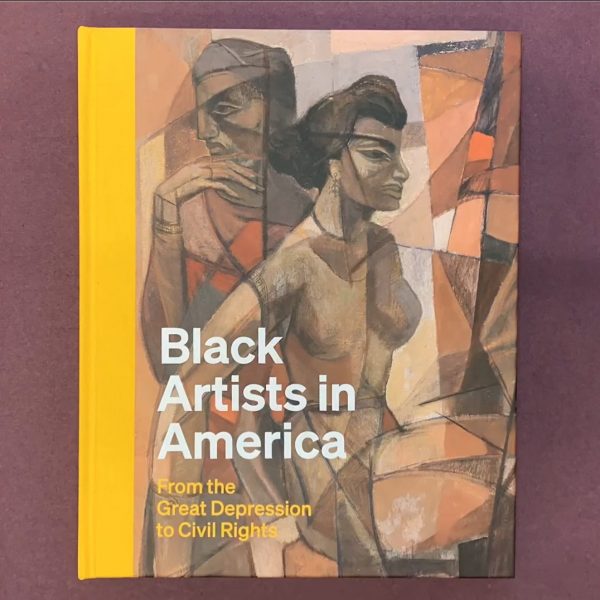Getting Negroes into the Major Leagues
It’s time to celebrate Black History Month, and even though the Super Bowl is still to come this weekend, already baseball fans are gearing up for Opening Day on March 31. Thinking back to Jackie Robinson’s entrance into the MLB with the Brooklyn Dodgers in 1947, the league has come a long way since. And while blacks had played baseball decades before, often under racial aliases like the “Spaniard” or the “Arab,” Robinson was the first major league player to come out of the Negro Leagues and break the color barrier.
This March, YUP is publishing two biographies of baseball greats, each a part of two popular series. The first, Joe DiMaggio: The Long Vigil, by Jerome Charyn, looks at DiMaggio’s legacy as an Icon of America. As one of the main figures of the sport, DiMaggio first faced off against Jackie Robinson in the 1947 World Series, the first to be televised. Although the Yankees would go on to  win the series, Robinson made Rookie of the Year. Still, the Yankees owners and management felt “a black player was not a Yankee type.” And while Charyn notes that “DiMaggio was a vivid part of that white-bread world, very much a Yankee of his time, entombed in the Bronx” and that “there was never a word from Joltin’ Joe about Jackie Robinson,” DiMaggio could not help his connection to another Negro player: Josh Gibson, dubbed the “black Babe Ruth.” Gibson never made it to the Major Leagues; he didn’t even see Robinson get there. In 1942, he became depressed, with painful headaches and violent outbursts, falling into a coma on New Year’s Day 1943 that would reveal a brain tumor. As his mental health and career hopes fell, Gibson took to looking out the window and talking to an imaginary player: Joltin’ Joe DiMaggio. “C’mon, Joe, talk to me, why don’t you talk to me? Hey, Joe DiMaggio, it’s me, you know me. Why don’t you answer me? Huh, Joe?” Gibson died in January 1947, three months before Robinson’s debut; his repeated words to imaginary Joe a disturbing parallel of his rejection by white baseball.
win the series, Robinson made Rookie of the Year. Still, the Yankees owners and management felt “a black player was not a Yankee type.” And while Charyn notes that “DiMaggio was a vivid part of that white-bread world, very much a Yankee of his time, entombed in the Bronx” and that “there was never a word from Joltin’ Joe about Jackie Robinson,” DiMaggio could not help his connection to another Negro player: Josh Gibson, dubbed the “black Babe Ruth.” Gibson never made it to the Major Leagues; he didn’t even see Robinson get there. In 1942, he became depressed, with painful headaches and violent outbursts, falling into a coma on New Year’s Day 1943 that would reveal a brain tumor. As his mental health and career hopes fell, Gibson took to looking out the window and talking to an imaginary player: Joltin’ Joe DiMaggio. “C’mon, Joe, talk to me, why don’t you talk to me? Hey, Joe DiMaggio, it’s me, you know me. Why don’t you answer me? Huh, Joe?” Gibson died in January 1947, three months before Robinson’s debut; his repeated words to imaginary Joe a disturbing parallel of his rejection by white baseball.
Hank Greenberg was another player in the MLB at this time, and as a Jewish player, he and Robinson were both targets of bigotry, though not at the same level of discrimination. Already an object of contempt from his refusal to play during Yom Kippur in 1934 with the Detroit Tigers, Greenberg faced jeers from fans and cheers from Jews who supported his decision. In Hank Greenberg: The Hero Who Didn’t Want to Be One, Mark Kurlansky says that Greenberg was “the quintessential secular Jew, and to celebrate him for his loyalty to religious observance is to ignore who this man was.” YUP’s Jewish Lives series seeks to illuminate the complex experience and impact of Jews in the many roles that they have contributed throughout history.
To his credit, Greenberg never aspired to the pinnacle of suffering. He often said that Robinson endured far worse abuse than he did. Greenberg hated prejudice in all its forms. He believed that his stance was not against anti- Semitism but against the ignorant bigots of the world; he recognized that his persecutors and Robinson’s were often the same people.
In 1947, Greenberg joined the Pittsburgh Pirates and met Robinson face-to-face on a walk to first base. It would be the last year of Greenberg’s career while Robinson battled discrimination in his first. Unlike many players, Greenberg publicly welcomed Robinson. They talked on base, Greenberg gave Robinson some advice, and later in an interview, Robinson responded with his own thoughts on the legend: “Class tells. It sticks out all over Mr. Greenberg.”
As the season and publication of these two biographies approach, you can check out Joe DiMaggio and Hank Greenberg on Facebook for more updates, stats, and commentary on the lasting legacy of these players. Even more: Joe is on Twitter with all kinds of fun notes and Jerome Charyn’s website is in on the action, as well. Help us kick the season off right by showing just how much of a true fan you are.



